|

by
Mateo Sol
November 05,
2019
from
LonerWolf Website
Spanish version

Understanding the nature
of the soul is perhaps one of the most fundamental and essential
tasks on the spiritual path. Without knowing what exactly the soul
is - and what our soul is like - we can easily get lost, stuck, and
stranded.
If you've always wanted to know what this mysterious force
is, how to get in touch with it, and how to distinguish it from
spirit, keep reading.
What is a
Soul?
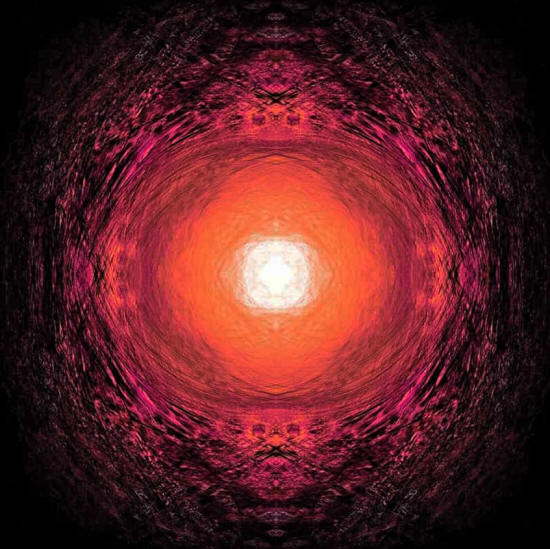
What is a soul?
Your soul is the
immaterial essence and totality of who you are at a core level -
it is your true nature.
As all of life at its
core is energy, a soul is the whole of this energy -
the sum total that animates us, moves us, and even speaks to us in
quiet moments when we need guidance.
As psychologist and shamanic teacher, Christa Mackinnon
writes,
… it is our soul that
provides us with a kind of inner voice, a moral compass and
direction.
It is our soul that
we hear as this 'little voice inside' reminding us that there is
more we can become, and it is our soul that suffers when we
don't nourish it by integrating a spiritual component into our
lives and striving to give our lives meaning and purpose.
The precise origin of the
word 'soul' is unknown, however, it derives from a variety of words
from the,
...languages.
Can Your Soul Disappear or Die?

Let's explore the first question:
Can your soul get
lost?
As in, can it
disappear or run away?
Certainly, you can be
what we refer to in the West as a "lost soul" (or someone who
loses their way in life) - but your soul never "runs" away and
gets lost, instead, you lose connection to it due to
trauma and inner wounds.
Your soul is always
there, it's just obscured by the dirt and debris of life. We'll
explore this topic more a little later.
Secondly,
Can your soul die?
This is an unnerving
question for a number of reasons, but the answer is no, your soul
can't die (thankfully!). It can transform and merge
back with spirit, but it cannot die.
As the ancient sacred Indian text known as the
Bhagavad Gita writes:
The soul is never
touched; it is immutable, all-pervading, calm, unshakable; its
existence is eternal.
This mirrors the first
law of thermodynamics which states that,
energy can transform
from one state to another, but it can neither be created or
destroyed...
The same can be said for
your soul, as your soul is energy:
the life force.
Therefore, it
can never die, only change form...
How's that for mind-blowing? If you truly stop to contemplate this
and integrate it, not only on a mental level but an emotional level,
this realization can change the whole way
we approach death.
Do Plants, Animals, and Other Lifeforms Have a Soul?

If we understand soul as the unique essence or essential life force
of something, we can see that everything has a soul because
everything has one-of-a-kind life force energy.
No two things in
existence are ever exactly the same (even identical twins have
differences).
When you go outside in nature, notice the trees around you. If you
pay attention, you'll discover that each one has a certain
uniqueness, not just in appearance but in energy - that is
the soul of the tree...
The same can be said for
anything you come across, a dog, a bird, a cloud, a mountain, even
the phone, tablet, or laptop that you're reading this on. Everything
has a specific 'such-ness' that differentiates it from other things.
Even the world - what is also referred to as
Mother Earth or
Gaia - has a soul, according to
numerous philosophical, spiritual, and religious systems of thought.
The world's soul is
known as the anima mundi or the universal soul
because it encompasses all beings.
It is essentially the sum
total of all energy, the manifestation and essence of all beings.
Can a Person
Be Born Without a Soul?

This is a somewhat controversial question and everyone has a
different response.
Do
serial killers, psychopaths, rapists, and so on have souls?
Those that react with extreme hatred and disgust toward these
types of people (which, by the way, is a normal reaction) would
scream NO WAY.
But my understanding
is that we're all born with souls, it's just that some people
lose connection to them due to ancestral, societal,
familial, and childhood trauma.
Sometimes this trauma is so intense that the person loses
complete connection with their soul - it is barricaded
behind wall after wall of,
rage, hatred,
pain, grief, toxic beliefs, core wounds, and defense
mechanisms.
Hence why a person
can appear to be "soulless" or "dead inside" - in some sense
they are because they've become totally separated from the
warmth and compassion of the soul.
When this happens
despicable acts of cruelty can be committed because the person
doesn't really feel anything (or becomes possessed by one
particular emotion like rage).
I like to think of an
analogy here:
Picture a large room.
Within the room is a
single, bright, pure light. It floods the whole room and
illuminates everything. But what happens when you build a wall
around this light? The room becomes dimmer and dimmer.
What happens when you
completely bury this light? The room becomes pitch dark: you
can't see anything, and you stumble around in a state of chronic
fear.
Eventually, you are
so used to feeling scared that you become numb - it becomes too
much to handle.
As a result, you
become a creature of the darkness, not really alive, but not
really dead either.
Those that experience
this will often resort to the most extreme measures to feel
something, anything - and when they do feel something, like lust for
someone, it may possess them so completely that they become
like a demon:
unable to feel or see
anything but that emotion...
When our inner room is
illuminated by the light of the soul, however, we can see and feel
clearly.
We don't need to live
in a state of fear - life is vibrant and fully alive...
So, how can we let this
inner light permeate our being?
There are a number of
different ways, and we'll explore some below.
But first, let's explore
the difference between
soul and
spirit...
Soul vs.
Spirit - What's the Difference?
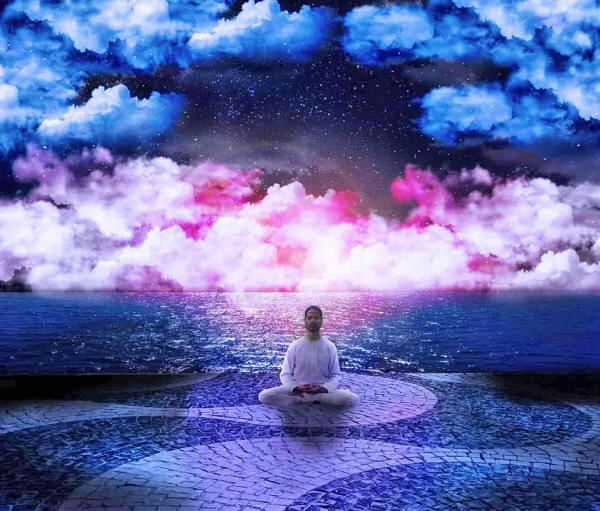
Most people are confused about the difference between the soul and
spirit.
They sound similar
and are often used interchangeably - but they're not the same
thing.
Whereas the soul
is connected with the earth, spirit is connected with
heaven.
While soul is a
doorway into the mysteries of the personal unknown, spirit
opens a door into boundless oneness.
Soul is
discovered in the subconscious or "underworld" realm, while
spirit is encountered in states of super-consciousness ("upperworld").
When we taste both states
we experience mystical feelings of bliss, but the soul is connected
with wild dreams, ecstasies, and visions, while spirit results in
the experience of pure, illuminated, content-free oneness.
Here we can see the fundamental difference between soul vs. spirit
summarized:
-
Soul is earthly,
mysterious, and accessed through the subconscious in dreams
and visions
-
Spirit, on the
other hand, is heavenly, content-free, and accessed through
states of purified awareness (such as meditation).
Perhaps a chart will
simply and easily define the difference between soul vs. spirit
(even though these distinctions may be a bit crude):
Soul:
|
Personal |
Individual |
Feels clearly |
Purpose =
fulfillment |
|
Underworld |
Unconscious |
Yin |
Symbolic |
|
Shakti energy
|
Water and
Earth |
Descending
into oneself |
Doing |
|
Spirit:
|
Impersonal |
Universal |
Sees clearly |
Purpose =
enlightenment |
|
Upperworld |
Super-Conscious |
Yang |
Content-Free |
|
Shiva energy |
Fire and Air |
Ascending
beyond oneself |
Being |
|
As explored in the book
Spiritual Ecology,
The idea of the human
soul... calls us toward our individual and unique relationship
to the world.
In this sense, soul
and Spirit suggest opposites - the unique versus the universal,
that which is approached by way of descent versus that which is
approached by way of ascent.
Ultimately, however,
each soul (each thing in its soul aspect) exists as an
expression of Spirit and serves as an agent or emissary for
Spirit.
Our individual
relationships with Spirit and soul are not contradictory but
complementary. A complete spirituality embraces our
relationships to both Spirit and soul, not just one or the
other. Together these two realms of spirituality form a whole.
Either one alone is
incomplete.
Here we can see that both
soul and spirit are really only two sides of the same coin.
Ultimately, soul must
serve as an agent of spirit, and spirit is incomplete without
soul.
By being who we
authentically are, by walking a path that is true to us, we connect
with soul and thus serve spirit.
What's the Ultimate
Purpose of Soul?

Now that we've answered the question "what is a soul?" we need to
dig more deeply and understand the ultimate purpose of the soul.
As I explored in "What
is the Meaning of Life?" we
all have an innate purpose, something that is programmed into us at
a core level, something that we fulfill.
We can observe this in the world around us:
Life is programmed to
grow, change, and expand.
All beings (trees,
animals, galaxies, etc.) go through cycles of metamorphosis.
And so do we...
Therefore, the ultimate
purpose of the soul based on this fundamental observation is to
grow and mature.
In fact, it's said that
the soul goes through many different stages (known as 'soul ages'),
in order to fulfill this basic purpose. Those souls who have grown
and matured over many lifetimes are referred to as
old souls.
But what is the culmination of all this?
Since the dawn of time ancient cultures, mystics, and sages have
referred to the ultimate purpose of the soul by many names:
to achieve
Buddha-nature, Enlightenment, Heaven, Christ-Consciousness,
Moksha, Illumination, or Oneness...
When enlightenment
occurs, the individual soul merges back into the universal spirit -
or as author Michael A. Singer
writes:
When the drop of
consciousness that knows itself as an individual drifts back far
enough, it becomes like the drop that falls into the ocean.
The Atman (Soul)
falls into the Paramatman (Supreme Soul). The individual
consciousness falls into the Universal Oneness. And that's it.
This is often known as
the experience of returning home or returning to our true nature
beyond
the limiting ego that likes to
control, manipulate, run away from, and fear life.
But this journey can take many lifetimes, and even enlightenment
isn't the end (for whatever is static is dead - and there's no such
thing as death ultimately).
There are still layers
upon layers of deepening, opening, and expanding to be experienced.
How to Find
Your Soul - 3 Mystical Paths
I write how to "find" your soul because, while the soul is always
there, its light can become obscured, barricaded, and blocked out of
daily life.
We need to move through the emotional, mental, physical, and etheric
pollution of our lives to reconnect with our souls. And this is not
an easy path, especially when we are so habituated to a certain
state of living.
To find your soul you need to question everything... You need to walk the path
less traveled, be
the lone wolf, and go in search of
something more.
This can be an uncomfortable path, hence why most
people prefer the comfort and complacency of mediocrity.
Are you ready to
listen to the inner call?
Are you sick of
feeling lost, alone, depressed, and empty inside?
Do you want to find
out your gifts, life destiny, and personal meaning?
If you crave something
more, it's time to start your spiritual journey. It's time to find
your soul.
Here are three sacred
paths that will help you reconnect with your soul:
Path 1 - The Body, Physical Realm
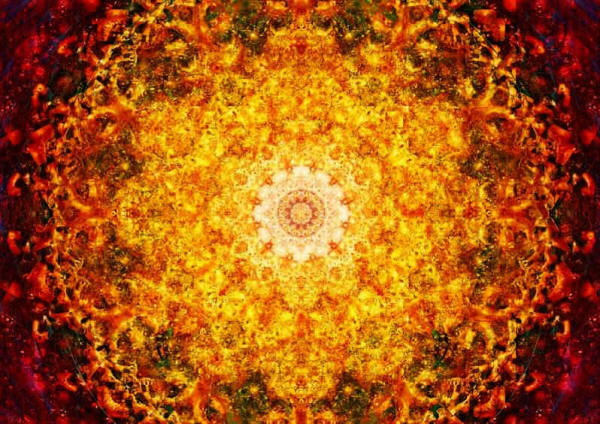
Practices that correspond to path 1 include:
-
Ecotherapy
(including deep ecology, nature immersion, vision
quests, etc.)
-
Yoga, tai
chi, qigong (physical disciplines that help you to
connect with your life force energy)
-
Breathwork
(using the breath to move through blockages, increase
vitality, sharpen awareness, etc.)
-
Bodywork
(various methods of therapeutic touch that release
trauma from the body, increase health and movement,
promote mind-body connection)
-
Somatic
psychotherapy (counseling that involves connecting with
the wisdom and healing capacity of the body as a vessel
of the soul, releasing trauma, and healing)
-
Plant
medicine (ingesting psychoactive substances to expand
consciousness and soul connection under the watch of a
shaman or healer)
-
Solitude
(physically removing yourself from the chaos of life to
look within)
-
Dancing
(intuitive movement to express the soul and balance the
chakras)
-
Singing and
chanting (using the voice to connect with and express
the soul)
-
Tantra (an
esoteric tradition that honors the body and all facets
of life)
The body is the
vessel of our soul, and connecting with it means reuniting with
the wisdom and intelligence we innately carry.
The body also carries
a lot of tension and trauma (known as body armor), so releasing
these simultaneously releases the barriers that surround your
soul.
Path 2 - The Heart, Emotional Realm
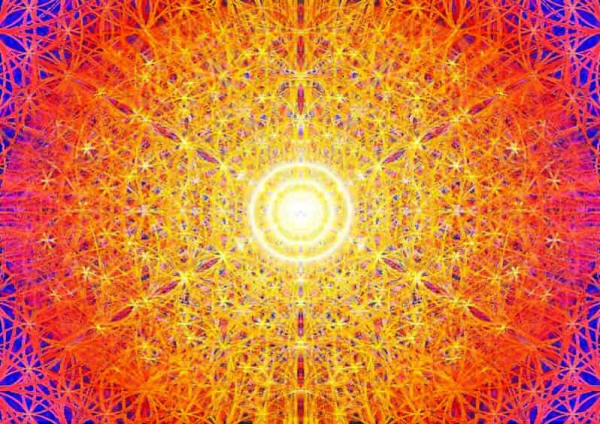
Practices that correspond to path 2 include:
-
Cultivating
gratitude (feeling thankful for all that you have - an
innate quality of the soul)
-
Developing
intuition (listening to the quiet wise voice within you;
the voice of the soul)
-
Devotion
(love and dedication to a certain quality, guru,
teacher, etc.)
-
Prayer
(communing with the soul through the heart's longings)
-
Cultivating
loving-kindness (commonly practiced through Metta
meditation)
-
Increasing
self-love (learning to love and embrace yourself, flaws
and all)
-
Philanthropy
(actively serving others with compassion)
-
Inner child
work (healing the wounded inner child within you)
-
Letting go (learning to
surrender, release, and discharge old emotional pain)
The heart is the doorway to the
soul, and learning to dive into it provides us direct access to
the essence of who we really are.
Opening, expanding,
and removing (or making peace with) the burdens that weigh on
our hearts helps us to invite the presence of our souls into
daily existence.
Path 3 - The Mind, Mental Realm
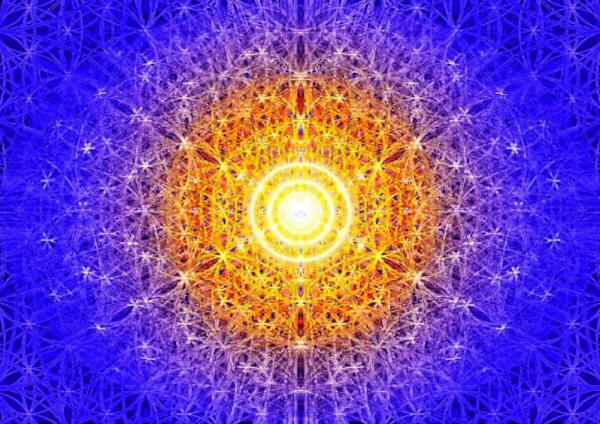
Practices that correspond to path 3 include:
-
Meditation
(quiet inner observation and thought-awareness)
-
Mindfulness
(paying attention in the present moment to all
sensations)
-
Journaling
(writing down thoughts and exploring inner self)
-
Shadow work
(exploring one's inner demons that block the soul)
-
Dream work
(using one's dreams, such as
lucid dreaming, as a
gateway to the soul)
-
Active
Imagination ("Astral Travel" - using the mind to go on
inner adventures)
-
Visualization
(using mental imagery to increase clarity, wisdom, love,
etc.)
-
Parts work
(exploring one's archetypes and bringing more internal
harmony)
-
Changing core
beliefs (reframing the beliefs that prevent us from
accessing the soul)
-
Spiritual
psychotherapy ("transpersonal counseling" - receiving
guidance from someone who integrates spirituality and
psychology)
The mind perceives
and expresses the soul, but when our minds are contracted,
polluted, and filled with fear we cannot access this essential
part of us.
Working with the
conscious and unconscious mind will help us to dissolve the
ingrained patterns, conditioning, and habits that obscure the
divinity within.
***
"Is one path better
than another?" you may wonder.
No, all paths are equal
and ideally, we'd do best to incorporate at least one practice from
all three paths into our lives. (Also, these lists aren't
exhaustive, so feel free to experiment with any practices that
aren't specifically listed here.)
To conclude, I'll leave you with a quote by psychiatrist Carl
Jung,
People will do
anything, no matter how absurd, in order to avoid facing their
own soul...
Although it feels more
"safe" to stay stuck in old patterns, the only way to find the
happiness, fulfillment, and peace you're looking for is to begin
soul searching...
| 










